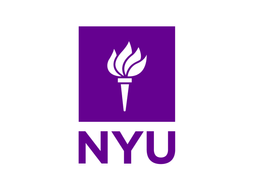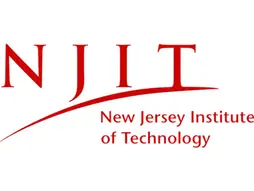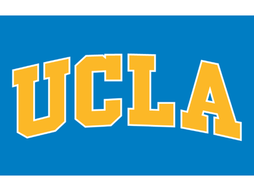Research In High School - Does It Help With College Admissions?
If you are in high school, you have probably heard a lot about doing internships and other extracurriculars to build a solid application for college. But research is one you may not have explored before.
We conducted a study to see whether doing research projects in high school corroborated with good college admissions. Our report analyzed data from 340 students in the Lumiere Research Scholar Program on their college admissions results. We looked into where they were admitted, how they incorporated research into their profile, and compared their acceptance rate to the general admission pool.
Why did we conduct this study?
The application to universities in the United States has grown increasingly competitive – and is undergoing change. With the removal of ACT/SAT scores in the 2022– 2023 admissions season, supplementary application materials like innovative projects, community service endeavors, and research portfolios become all the more important in building a holistic profile.
Lumiere gets a ringside view of different graduating classes of high school students moving through the college app process. In lieu of the changes in the admissions cycles, we decided to conduct this study in order to find out how the Lumiere program – and more specifically how independent research – contributed to students’ application material.
While, of course, the research was a limited sample size of 340 students – we found that they had received acceptances from almost 200 universities. Some of the highlights can be seen below.

Furthermore, we found that – while we cannot confirm a causal relationship, i.e. we cannot confirm that doing research directly caused these acceptances – there is definitely a strong correlation between doing research and gaining college admissions at selective universities.
How does research help with college admissions?
In our study, we compared Lumiere students to the general admission pool. From a statistical point of view, students who did research were 4 times more likely than the general pool to be accepted into a top university.

84% of the top admits mentioned their research projects as a part of their activity list, and over 40% further contextualized their research projects in their supplemental essays. What’s crucial to note is that by mentioning and contextualizing their research, students demonstrated their motivation, skill, and dedication in their college applications.
Research reflected a deeper passion to learn, and the willpower and discipline to commit to learning. Additionally, with more and more universities opting for the test-blind route, you must keep in mind the relevance and impact your application has, independently of your test scores. You can read more about it here.
How to position research in your college application
Our report found that applicants used research in their college application in three kinds of ways:
1. Students don’t just mention research in their activity lists, they also contextualize and describe their research either through an essay or by mentioning it in interviews.
Almost 40% of the students also included their research paper as a link or an attachment to at least one of their applications. These methods are the biggest ways to mention your research experience. What makes these methods of positioning your research so useful is not just mentioning that you did the research, but contextualizing the experience – why you did it, what you learnt from it, how it helped you.
Activity lists and essays are a great opportunity to do this! Additionally, you can read up on finding research opportunities as a high school student here.
2. In the context of the Lumiere Research Scholar Program specifically, students were able to build multi-dimensional profiles through letters of recommendation or mentor evaluations from their research mentors. By having this additional validation from mentors, you can demonstrate to colleges that you are a highly capable student!
These letters of recommendation can go a step further in building your character, than you might be able to solely in your essays. We’ve covered lots of useful insights on how admissions officers evaluate research in admissions, which you can read here.
3. Interestingly, our report found that research comes up as a topic for college interviews. Quite a few respondents in our study shared that their experience with research proved to be productive in their college interviews, where they spoke about their projects. In addition to being a unique topic for college interviews, you can also use them as a way to more comfortably position your research as a part of your application!
But it is easy to say one should contextualize research in specific ways without articulating what those ways could look like. So in our study, we conducted six case studies to see what manners of utilizing research correlated with the most success. We found this:
1. Research can demonstrate an academic spike
Research can be a great way to demonstrate a deeper learning and understanding of a subject, beyond the school level. In the case of Jonathan (a student who took part in the Lumiere Research Scholar Program) – this proved to be the case.
Jonathan and his mentor from Cambridge were running into a serious technical hurdle in Jonathan’s research project on how primordial black holes could be used to determine irregularities of the cosmic microwave background close to the origin of the universe.
Eventually the two managed to address the challenge and move forward, but the experience of trying to tackle the problem was such a challenging endeavor that Jonathan was able to demonstrate growth in his academic abilities and depth of knowledge in his chosen field– demonstrating a ‘spike’.
Jonathan received a letter of recommendation from his mentor, and also mentioned and talked about his experience in his essays. When being interviewed by an Ivy League Interviewer – he was informed he’d been selected for an interview based on the recommendation of a university professor who had read his paper!
2. Research can cover areas you may not have known and build your credibility
When school curriculums don’t necessarily cover certain subjects it can pose a challenge, especially if you’re interested in pursuing it. However – to universities– doing research in that subject can build your credibility and case to pursue it, in addition to covering skills and areas you may not have known.
Shelley (a Lumiere Student) was in a situation where she wanted to major in history but the IB Diploma in her school did not offer it as a subject. She conducted her research on how the reporting and portrayals of the Franklin Search expeditions reflected and refracted anxieties about class and the British Imperial Project.
Walking into doing intensive academic research in a field she had no complementary formal education in led to her gaining skills that she felt she would not have otherwise gained in school! Shelley mentioned her experience across her activities, her personal statement, and her interviews.
3. Research can help you gain further opportunities
Sometimes, mentored research projects can open doors to even more advanced opportunities that are hard to come by, and really help build your profile! This was the case for Vinayak (a Lumiere Student), who built a strong relationship with his mentor in the Lumiere Research Scholar Program.
Vinayak’s aptitude left a strong impression on his mentor. At the end of the 12 week program– Vinayak expected it to be the end of his research journey, but to his surprise, his mentor offered him the opportunity of working with his quark research group at Purdue as an independent researcher.
When applying to universities, this experience significantly contributed to Vinayak’s profile, demonstrating that he could succeed in an academically challenging environment.
To read more, and specifically case studies in detail, you can read the full paper here!
How do you do research in High School?
There are a lot of research opportunities out there, even if they tend to be competitive. For instance, you could consider the RSI (Research Science Institute) at MIT. You could also look at the Simons Summer Research Project at Stony Brook University.
If you are interested in doing university-level research, then you could also consider applying to the Lumiere Research Scholar Program, a selective online high school program for students that I founded with researchers at Harvard and Oxford. Last year, we had over 2100 students apply for 500 spots in the program! You can find the application form here.
Stephen is one of the founders of Lumiere and a Harvard College graduate. He founded Lumiere as a Ph.D. student at Harvard Business School. Lumiere is a selective research program where students work 1-1 with a research mentor to develop an independent research paper.
Image Source: Lumiere Education











